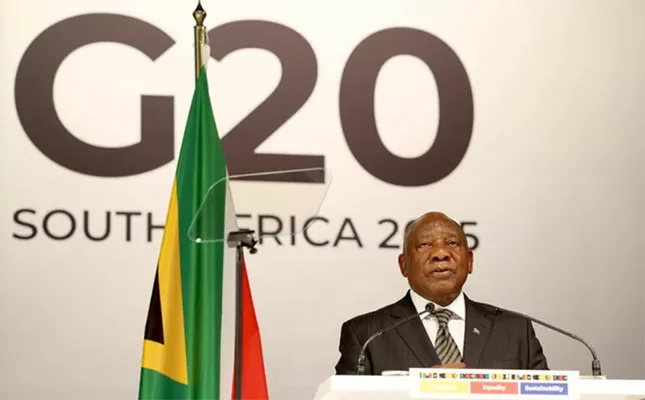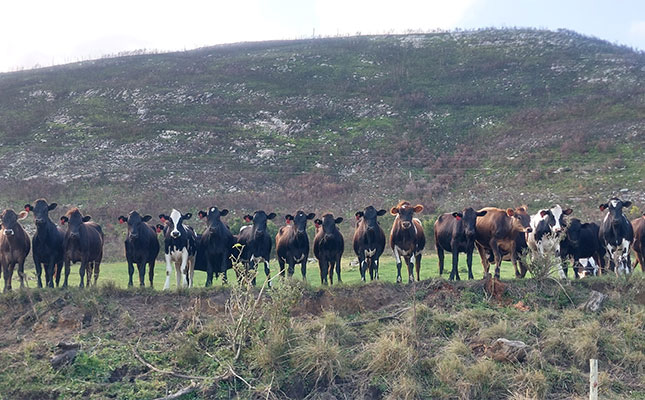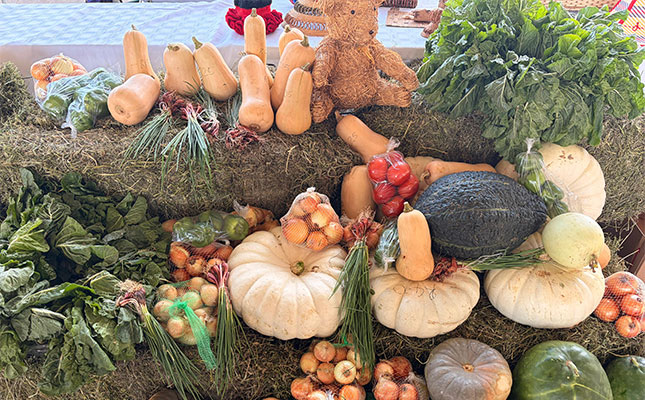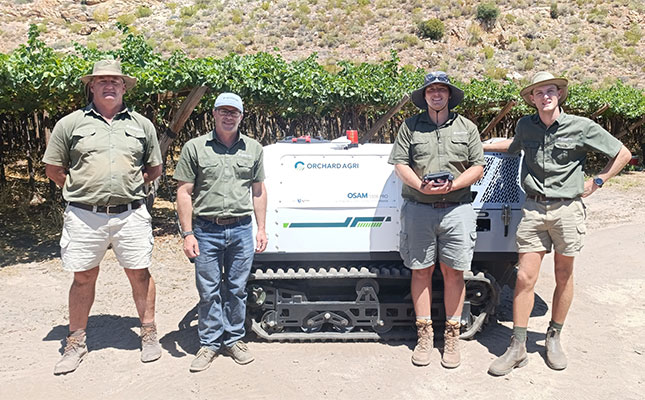
According to the Institute for Economic Justice, the Group of 20 (G20) countries represent about 85% of the world’s total GDP, are responsible for more than 75% of global trade, and are home to almost two-thirds of the global population.
The G20 is an intergovernmental forum comprising 19 sovereign countries, the EU, and the African Union (AU). The group aims to address major issues related to the global economy, such as international financial stability, climate change mitigation, and sustainable development, through annual meetings of heads of state and government.
READ Limpopo hosts G20 Meeting of Agricultural Scientists
The G20 South Africa 2025 summit will include ministerial meetings, working group sessions, and the G20 Leaders’ Summit.
Under South Africa’s presidency, the summit will focus on three core pillars:
- Solidarity: strengthening multilateral cooperation and addressing global inequalities;
- Equality: encouraging shared prosperity and narrowing the gap between the rich and the poor; and
- Sustainability: tackling climate change and advancing green development.
According to a document on the G20 compiled by the Interdepartmental Communications Committee, the South African government values the opportunity to be part of global solutions and share the country’s experiences on how to address the problems faced by the international community.
Referring to the goal of obtaining equality, Minister in the Presidency Khumbudzo Ntshavheni noted at a Post-Cabinet briefing in Pretoria in September that South Africa was continuing to host and facilitate preparatory meetings as part of the countdown to the G20 summit this month. One such meeting was that of the G20 Food Security Task Force, held in Egypt.
What does the summit mean for agriculture?
Dr Tobias Doyer, CEO of Grain SA, told Farmer’s Weekly that South Africa’s dual membership in the G20 and BRICS allows it to advocate for a more inclusive global economic system, championing issues such as sustainable development, poverty alleviation, and economic recovery through global debt reform and action against illegal financial flows.
“Furthermore, South Africa’s agriculture sector has an important role to play in promoting knowledge sharing on climate-smart practices, enhancing agricultural trade, and improving access to fertilisers and agricultural technology,” he added.
“By advancing these goals, South Africa can contribute to the broader global conversation on economic stability, sustainable growth, and peace, positioning itself as a key player in shaping the future of global governance and fostering cooperation between the developed and developing world.”
Doyer called for commitment to translate political words and aspirations into real action.
“We will have to distinguish between beautiful words and practical executions. We need investment in practical measures to support African farmers. We hope issues such as logistics and access to new agrochemicals, seed, technologies, and markets will be addressed.”
“We also need to look at the harmonisation and synchronisation of regulations and technology approvals. This is extremely important for technology support and exchange across country borders,” he added.
He noted that while most farmers, agriculturists, and environmentalists agree on the need for sustainable farming practices, practical solutions that focus on the long-term sustainability of family farmers must be adopted.
Focus on Africa’s growth
If discussions at the G20 summit are leveraged to advance agricultural policies, networks, resources, and capabilities, it can facilitate potential investment and advances within the sector in Africa.
During his 2024 State of the Nation Address, President Cyril Ramaphosa said he would put Africa’s development at the top of the agenda during the G20 summit.
A document about the summit, drawn up by the Agricultural Research Council, states that the topics set for discussion include health, education, finance, women’s empowerment, energy transition, infrastructure development, climate and environmental sustainability, research and innovation, and agricultural development.
According to the African Development Bank, more than 60% of Africa’s working population is engaged in agriculture, and much of the continent’s soil is rich and fertile. Thus, as agriculture is the lifeblood of the African economy, discussions at the G20 Summit are expected to delve deeper into issues affecting the sector.
A diplomatic milestone and agricultural opportunity
The strategic significance of the G20 Summit being held in South Africa must be viewed in the context of the country’s influence in other forums such as BRICS, the AU, and the African Growth and Opportunity Act, as well as its emerging trade agreements with other nations.
“South Africa’s G20 presidency is more than a diplomatic milestone; it is an agricultural opportunity. In 2024, our sector achieved record exports of US$13,7 billion (around R250 billion), despite drought pressures, reflecting the resilience and competitive strength of South African farmers.
“With R144 billion in agricultural trade already linked to G20 markets, and diversified export growth across Africa, Asia, the Middle East, and the EU, the summit gives [South Africa] a platform to deepen these partnerships. This is our moment to position African farmers at the centre of global solutions on food security, climate resilience, and sustainable growth,” Johann Kotzé, CEO of AgriSA, said.
The long-term impact of the G20 South Africa 2025 summit will depend on whether discussions and agreements translate into tangible benefits for African communities. If successful, the summit could:
- Unlock billions in funding for climate-adaptation programmes in vulnerable regions;
- Accelerate debt relief negotiations that could free up funds for other investments; and
- Strengthen trade partnerships that can create jobs and promote economic inclusiveness.
Beyond the immediate outcomes for Africa, the summit will send a powerful signal to the world that the continent is ready to play its part in global decision-making, helping to shape the policies that affect its people, economies, environment, and agriculture.
Get trusted farming news from Farmers Weekly in Google Top Stories.
➕ Add Farmers Weekly to Google ✔ Takes 10 seconds · ✔ Remove anytime










